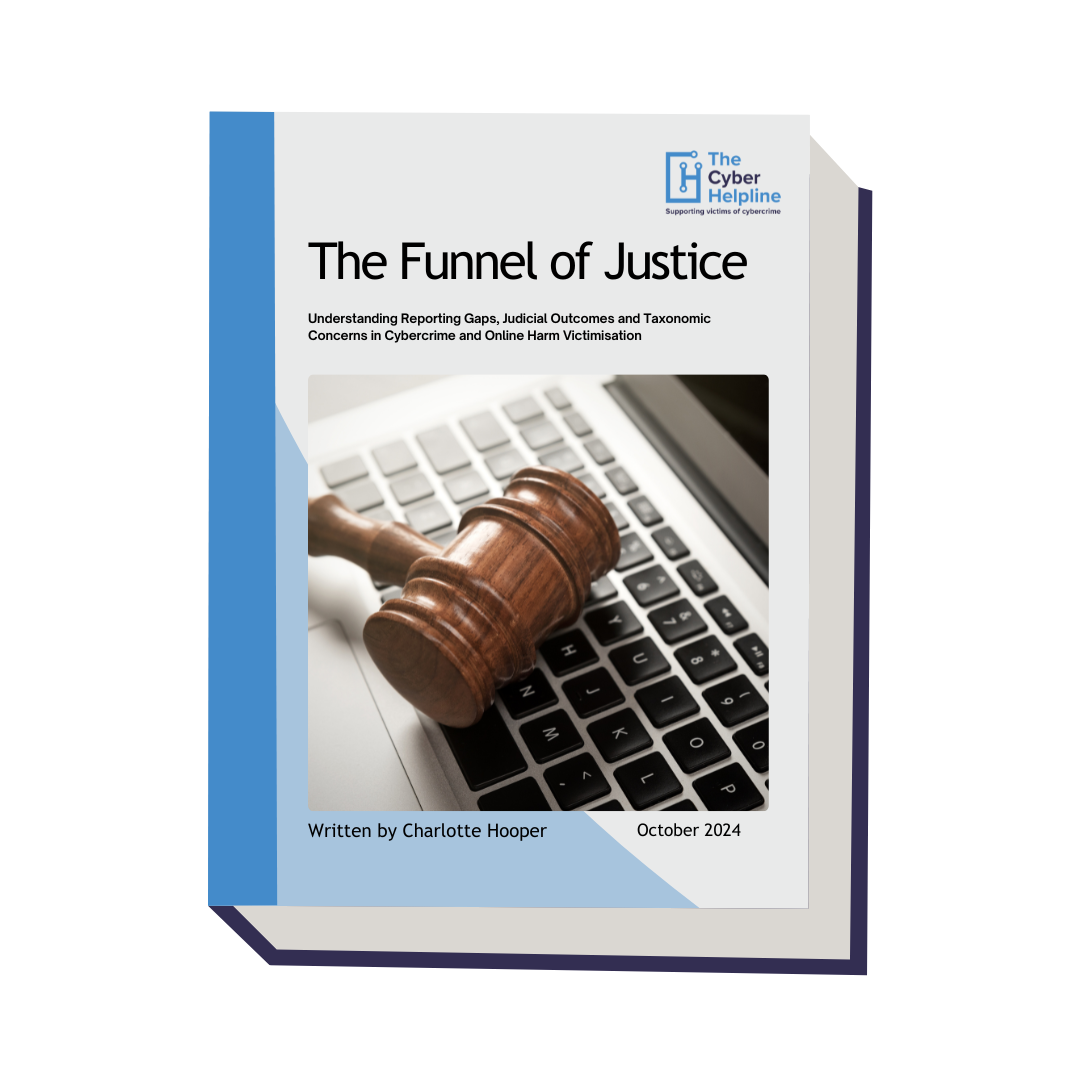The Cyber Helpline Report: The UK Justice System is Failing Cybercrime Victims
Cybercrime and online harms are rapidly evolving, impacting millions annually in England and Wales alone. Recognising the complexity and urgency of these issues, The Cyber Helpline has undertaken a thorough analysis to examine the critical gaps in the processes of reporting, investigation, and prosecution faced by victims. Drawing on our data and insights from across England and Wales, we explore the journey of victims from the initial impact through to potential prosecution.
This analysis culminated in The Funnel of Justice, a comprehensive report that explores the justice process, highlighting where victim support often falls short and identifying key areas for improvement.
Key Findings
Report Highlights
Low Reporting Rates: Only a fraction of cybercrime victims report their experiences to the police, often due to uncertainty about the process or fear of not being taken seriously.
Disparity in Justice: Victims of cybercrime are significantly less likely to see perpetrators charged compared to traditional crimes.
Limited Resources: Despite the prevalence of cybercrime, law enforcement agencies face significant resource constraints, limiting their ability to effectively investigate crimes.
Evolving Tactics: Cybercriminals are continuously adapting their methods, making it essential for authorities to stay ahead in their response strategies.
Long-lasting Effects: The impact of cybercrime on victims often extends beyond the immediate incident, affecting their mental health, finances, and sense of security.
Impact of Cybercrime
The impact of cybercrime and online harm on individuals extends far beyond financial or material losses; it inflicts profound emotional and physical effects that can be devastating. Our data reveals that over 70% of cybercrime victims report a 'very high' impact on their mental health and day-to-day lives. The report highlights the experiences of victims, many of whom feel unheard and unprotected, resulting in heightened distress and a sense of isolation.
“I am spending all my spare time after work dealing with screen shotting evidence, trying to reset devices and reset passwords, it is draining me of energy. I am lying awake at late hours of night worrying about if my account is being looked at while I am asleep.
Victim of stalking on the impact on others”
“They had all my personal information including bank and home address. When I was being threatened he said he would make sure I couldn’t report it to the police. I have still not told anyone in case they come for me or hurt my children.”
State of Cybercrime
Despite a staggering reliance on technology in the vast majority of crimes, those affected by cyber incidents often find themselves navigating a justice system that is not equipped to support them. The National Fraud Strategy (HM Government, 2023) acknowledges that less than 1% of police resources are dedicated to cybercrime, despite it accounting for over 40% of crimes.
We aim to provide a comprehensive understanding of the landscape of cybercrime and the urgent need for reform. In the analysis, we address the factors contributing to the current state of cybercrime: issues related to funding and resources, which hinder effective responses, as well as barriers to reporting that discourage victims from coming forward. We examine institutional challenges, investigative difficulties, and the complexities of taxonomic and jurisdictional issues that further complicate the prosecution of cyber offences.
Filling the Gap in Support
The insights and findings presented in our report illuminate the critical gaps in support for victims and the systemic barriers that hinder their pursuit of justice. To facilitate meaningful change, we have outlined specific recommendations that aim to improve the reporting processes, enhance investigative practices, and foster collaboration among various agencies.
By raising awareness of these issues and the accompanying recommendations, we hope to inspire dialogue and action among policymakers, law enforcement, and support organisations. The Cyber Helpline remains committed to advocating for improvements that will ultimately lead to a safer and more just environment for all online users.
Curious to learn more about the hidden struggles victims face and the critical gaps in our current response to cybercrime? Click below to read the full report or a snapshot of The Funnel of Justice.


